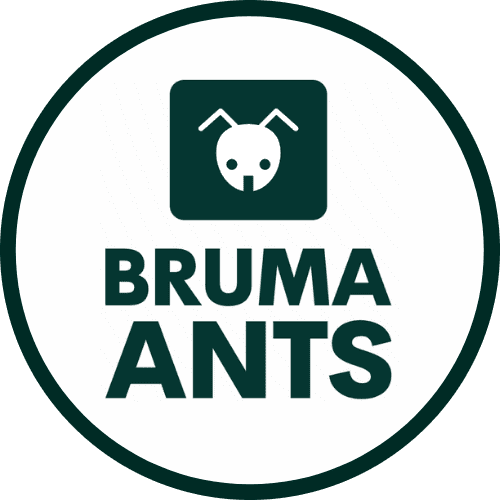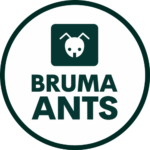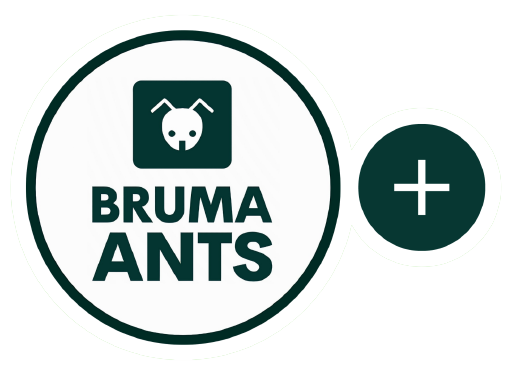Let me guess: you wanna start your journey into the fascinating world of ant keeping, but you fear making some beginner mistakes along the way? Am I right? Well, it’s your lucky day! You’ve just found the right article! Let’s get into it!
As you may have already discovered, ants can make fascinating pets, and keeping an ant colony can provide endless hours of entertainment and amazing learning experiences! However, ant keeping can also be a challenging hobby, and it is essential to educate yourself and prepare properly before starting to grow your own ant colony from scratch.
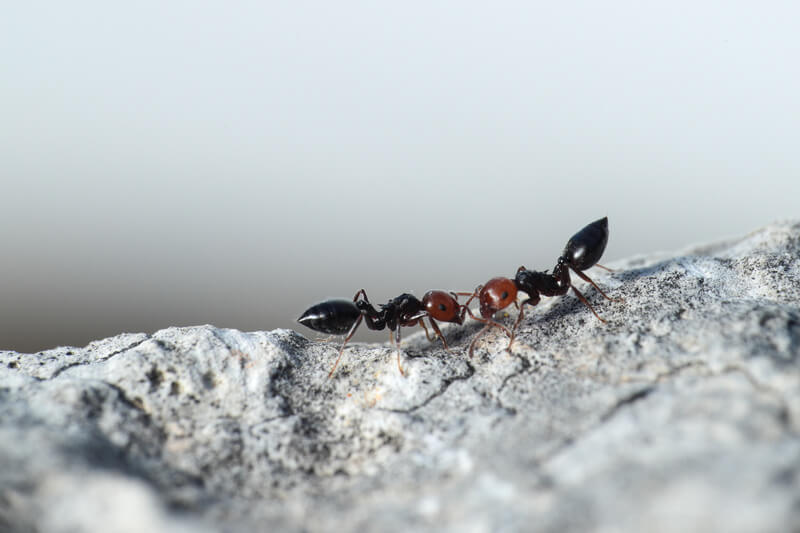
In today’s article, we’re going to dive deep into the world of ant keeping, sharing 3 invaluable tips and highlighting 3 common mistakes that beginners often make when approaching this underrated hobby for the first time!
With these tips and guidelines, you can set yourself up for success, and enjoy the rewarding experience of keeping a healthy and thriving ant colony!
Whether you’re a seasoned ant enthusiast or just getting started, I’m sure you will learn something new and exciting in this short article! So grab your magnifying glass and let’s embark on this ant-tastic adventure together!
Let’s start with the first tip!
Tip Number 1: Choose The Right Ant Species
One of the most important decisions we face when we start approaching this amazing hobby for the first time, is choosing the right ant species. There are over 12,000 known species of ants all around the world, and each and every one of them has its own unique characteristics and particular requirements!
Some species of ants are extremely easy to care for, making them the perfect choice for beginner and inexperienced ant keepers. These species do not require much maintenance, and can live without any type of intervention for long periods of time!
On the other hand, other species are a lot more challenging to care for, and require advanced knowledge and lots of previous experience. These ants usually come from exotic and remote regions, and most of the time need complex and very difficult-to-replicate founding setups.
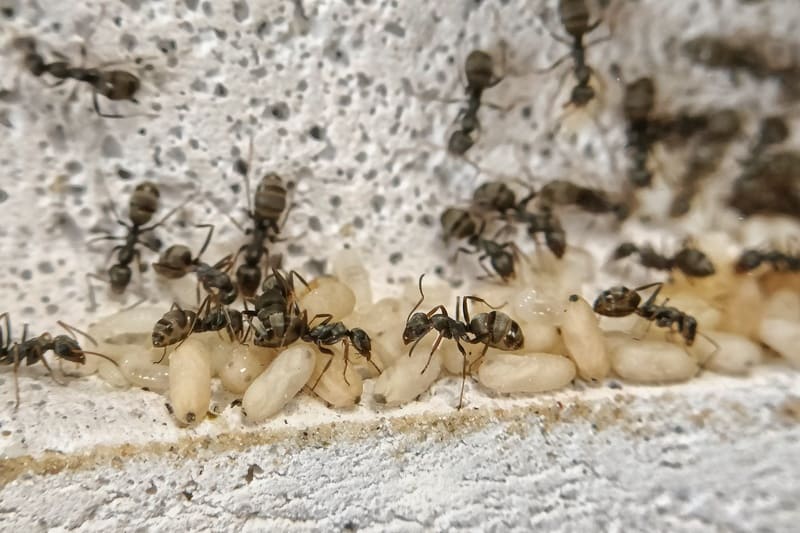

For these reasons, before choosing an ant species, it is extremely important to do a lot of intense research, and learn about all the different options available. You need to take into account factors such as the size of the colony, the type of nest and habitat they prefer, the type of food they like to eat, and if they have some sort of biological weapon such as a venomous sting or sharp mandibles.
Some popular ant species that are considered ideal for beginners are Lasius niger, commonly called the black garden ant, Messor barbarus, the red-headed harvester ant, and Pheidole pallidula, the big-headed ant.
These species of ants are relatively easy to care for, and provide a good introduction to the world of ant keeping. However, there are many other options to consider and start with, and the best species for you will depend on your personal preferences and circumstances! So, as said before, grab your favorite pair of glasses and start your long research journey!
Tip Number 2: Choose The Right Nest Type
Now that the ant species that better suits your needs and experience level is finally in your hands, it’s time to choose the appropriate nest! Trust me, I know the feeling! You just finished watching a video on YouTube from your favorite ant keeper showing his amazing new giant ant nest, and now you can’t wait to go online and buy one for your colony!
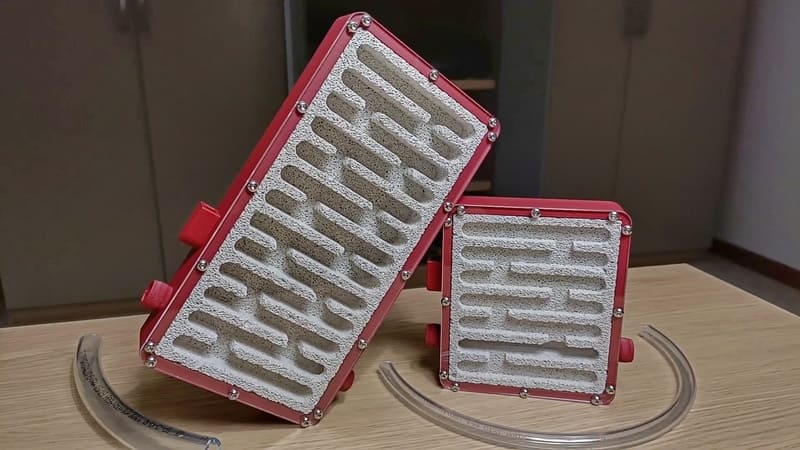

Well, not so fast! Before you can buy your first ant nest, you need to do some research about your ant species! You first need to find out in which type of environment they like to live in the wild, and what type of material better replicates the conditions they experience in their natural habitat.
For example, some species of ants like to live in dry places such as wood, like the ones from the genus Camponotus, while others prefer a more humid environment, like the species from the genus Lasius. Only when you have all these pieces of information you can decide which nest type better suits their needs, and which one you should choose to house your new ant colony!
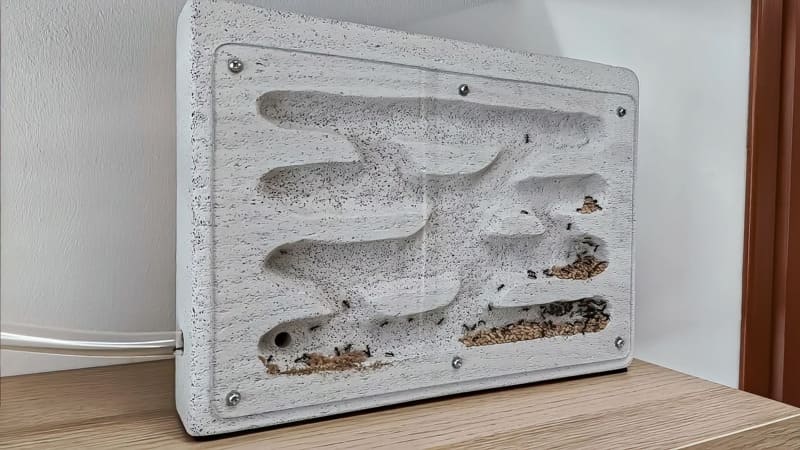

If you like the idea of building your own ant nest from scratch, you will definitely like this guide! In this other article, I explain in detail how to make your personal D.I.Y. Ytong nest, just like the one you see above!
Another very important aspect to consider when choosing a nest for your beloved ants, is the current size of the colony. Ants don’t like large empty spaces inside the nest, and prefer to live in an environment with just the right amount of room to accommodate them. In a nutshell, the smaller the nest, the better it is!
An oversized nest can create lots of stress in the ants, slowing the pace of growth of the colony. Another problem with large empty spaces inside the nest, is the waste management aspect. As you probably already know, ants produce a ton of waste! In a normal situation, they would take all the trash outside of the nest, keeping the inside of the chambers clean and tidy.
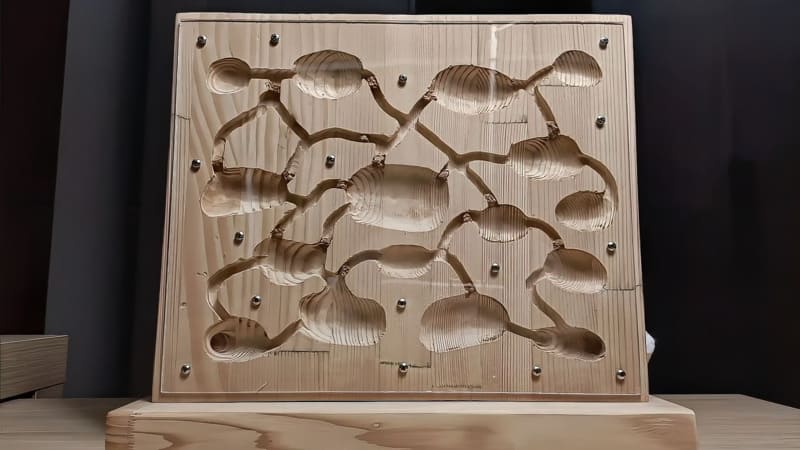

On the other hand, if the nest has lots of free and unused space, the ants will probably accumulate all the trash there, creating a time bomb of mold and bacteria! For this reason, the size of the colony is an essential aspect to consider when choosing a nest, and failing to do so will likely get your colony on a very dangerous path!
Tip Number 3: Provide A Consistent And Appropriate Diet For Your Ants
As you can imagine, just like us, ants require a consistent and appropriate diet in order to thrive and keep every component of the colony in the best possible shape. Different ant species have different dietary needs and preferences, and providing the right type and amount of food for your specific ants is extremely important!
As a general rule, the two main macronutrients that cannot be missing in an ant diet are protein and carbohydrates. Ants use carbohydrates as their main energy source, enabling them to work intensely all day long without missing a single beat!
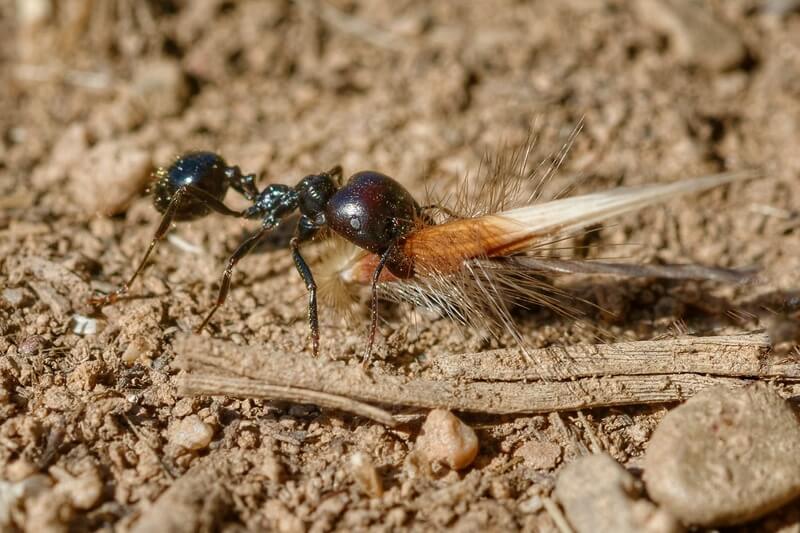

Proteins, on the other hand, are not used by all the members of the colony, and are mainly utilized by the queen and the brood. The queen needs proteins for the production of the eggs, and the brood uses them to complete their long development phases and turn into fully formed adult ants.
The ants obtain these very important nutrients from a variety of different kinds of food, such as insects, seeds, fruits, and honey. Some species of ants can be considered omnivorous, and have no problems eating everything they find on their path. On the other hand, other species are a lot more picky when it comes to choosing what they wanna eat, and require a more specific and strict diet.
For example, the species from the genus Lasius are extremely easy to care for for this exact reason, as they will eat almost everything you give them! The species from the genus Messor, on the other hand, have a more strict diet, and prefer to eat different types of plant seeds.
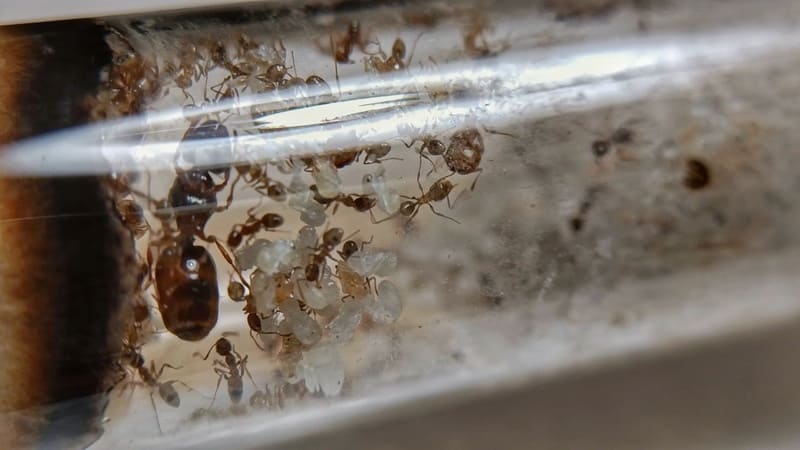

In addition to providing a consistent and appropriate diet, it is also important to ensure that your ants have access to a constant source of clean and fresh water. Ants require water to hydrate and nourish their bodies, and without it, they would not last very long!
You can provide water to your ants using a variety of methods, such as moistening the habitat with some type of spray bottle, using a small dish full of water, or using a water feeder made specifically for this kind of job.
Now let’s jump to the 3 mistakes you must avoid when approaching this amazing hobby for the first time!
Mistake Number 1: Mix Different Ant Species Together
Let’s start with the first mistake you can make as a beginner ant keeper. Luckily, this one is not very common in the ant keeping community, but knowing it at the start of your ant keeping journey definitely doesn’t hurt, and can actually help you prevent lots of bad experiences!
As a beginner ant keeper, mixing different species of ants inside the same enclosure may not sound so unreasonable to you. After all, in the wild you always find all kinds of ants living together in the same environment, and they don’t seem to bother too much!
Well, that can definitely be true in nature, where you have an abundance of food, land, and all kinds of precious resources. Things get a little different when we talk about a glass enclosure measuring 30×20 centimeters!
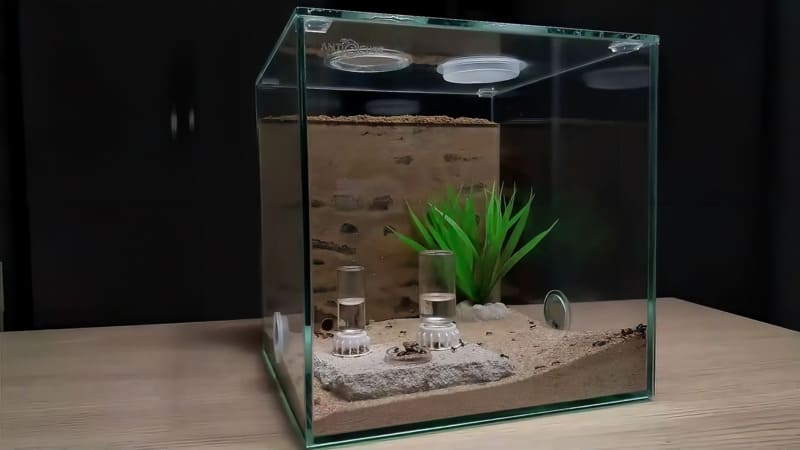

In the limited space of the enclosure, different ant colonies are forced to share a large section of their territory, increasing the chance of having deadly conflicts between them!
And that’s not all! Each ant species has its own unique behavior and requirements, and mixing completely different types of ants together can disrupt their natural dynamics and food-gathering habits. On top of that, different ant species may have completely different kinds of dietary needs, and satisfying each and every one of those can be quite tricky!
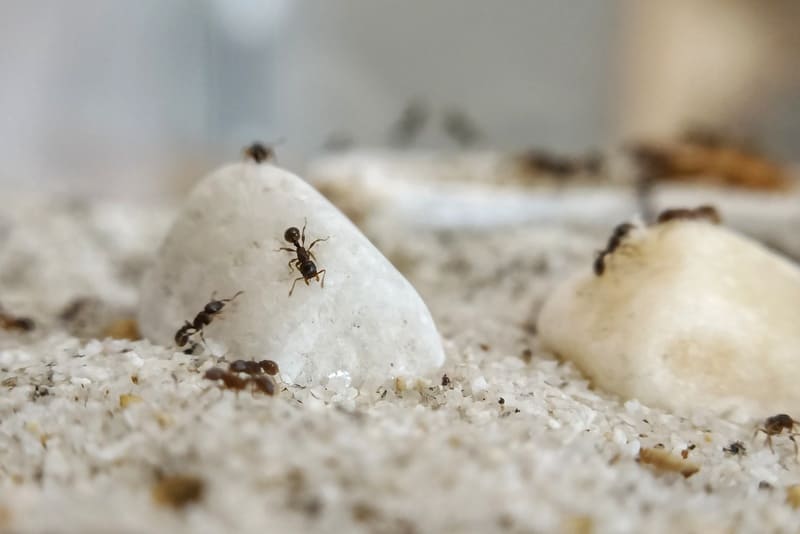

However, in some rare cases, different species of ants can actually coexist in the same environment without any particular issues, as long as they are not natural enemies, and have no problem sharing the very limited little space available inside the glass enclosure.
So, it’s definitely possible to keep compatible ants in the same enclosure, as long as you can provide them with the care and attention they need, trying to limit as much as possible every type of aggressive behavior between them.
However, if you are a beginner ant keeper with a limited track record, I would definitely suggest you not mix different species together, at least not in your early days, and start with a more standard approach of one single species per enclosure!
If you are a beginner and are just starting to get into this amazing hobby called ant keeping, I would suggest you check out this other article! In this one, I list some other common mistakes that almost every ant keeper makes when they start to keep ants for the first time!
Mistake Number 2: Over Or Under-Feed Your Ants
Another common mistake made by a lot of beginner ant keepers is over or under-feeding their ants. Both of these non-ideal scenarios can easily lead to health problems and challenges for the colony, and in some extreme cases, they can even decimate an already well-established colony!
If you give your ants a lot more food than they actually need, they will probably start to accumulate it inside the nest, ready to be used when the bad times come. At first glance, this may not appear as a serious issue. After all, how can be a problem to have too much food? Right?
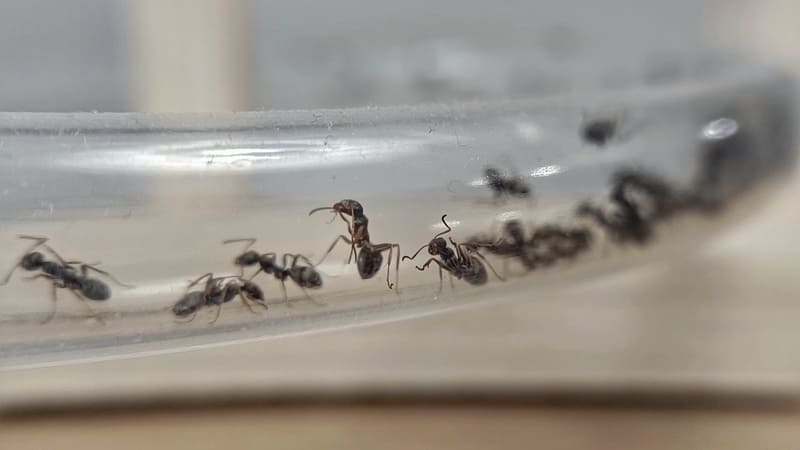

Well, as they say, the devil is in the details! If you leave massive doses of live food inside a highly humid environment like an ant nest, you will certainly end up having some mold outbreaks! These insidious outbreaks are very hard to contain once unleashed, and can quickly reverse all the progress the colony has made thus far!
If you go in the opposite direction and decide to limit as much as possible the risk of mold outbreaks by reducing the amount of food you give your ants, you will likely end up having an under-feeding problem.
This can quickly lead to a weakened and unhealthy formicarium, causing a reduction of the overall size and productivity of all the members of the colony, including the most precious one: the queen. To avoid this mistake, it is essential to provide your ants with a constant and adequate amount of food. In a nutshell, not too much, and not too little!
Mistake Number 3: Neglecting Your Ants
The last point of this short list of mistakes you must avoid as a beginner ant keeper, is about neglecting your ants. Even tho ants don’t require lots of attention and maintenance if compared to other more mainstream pets, completely neglecting their needs and requirements can lead to serious problems and challenges for the colony!
Like every other animal, ants need a constant source of food and water in order to survive, and depriving them of these basic needs can cause irreversible damage to the health and well-being of the colony!
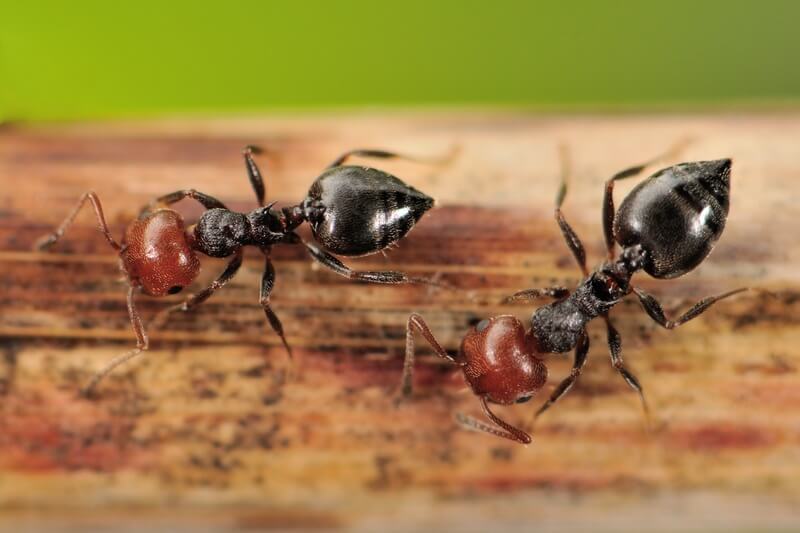

To avoid this common mistake, you just need to regularly check how your ants are doing, maybe once or twice a week, and monitor all the signs that can highlight some anomalies in the overall well-being of the colony.
From time to time, you should also clean and maintain their setup, by removing any potentially dangerous waste and debris you find in the outworld, and change the food regularly in order to prevent the very frequent mold outbreaks.
Conclusions
So there they are! 3 tips and mistakes to avoid if you’re just starting to keep ants as your little tiny pets!
I’m pretty sure that with these useful tips and guidelines you will become a better ant keeper, growing lots of healthy and thriving ant colonies along the way, and enjoying the satisfaction and fulfillment that only this amazing hobby can provide!
I wish you the best of luck with your new ant keeping adventure!
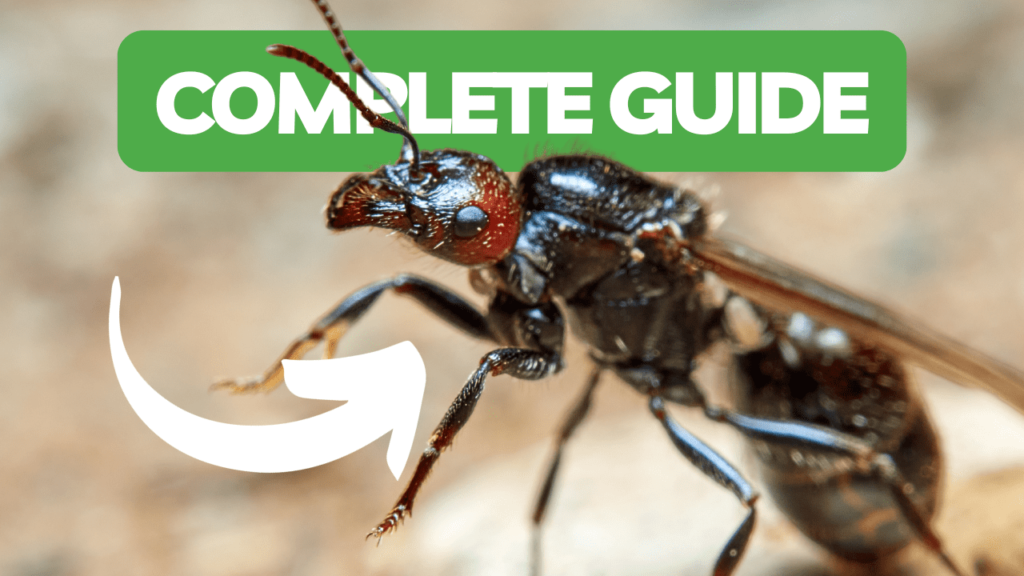

If you’re new to ant keeping and wanna be sure to start this hobby the best possible way, I would strongly suggest you check out this other tutorial!
This is a complete and detailed starting guide to ant keeping, explaining everything you need to know to move your first steps in this amazing and underrated hobby!
Real-world impact!
Thanks to the BRUMA Ants Plus subscribers and our partner Ecologi we are planting lots of trees all around the world! Click on the Ecologi logo to see the real-world impact of this amazing community!
Join our Discord!
